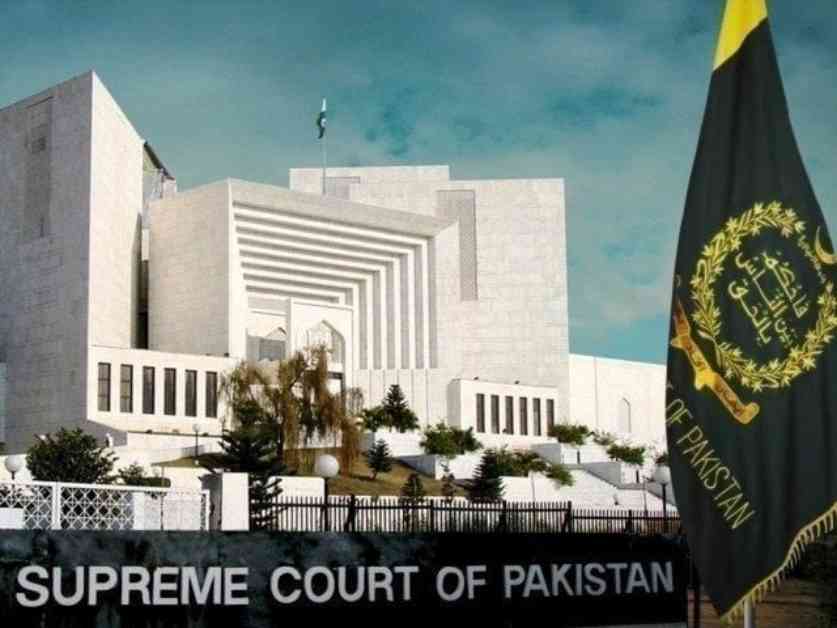Military Trial of May 9 Accused Challenged by SC: A Deep Dive into the Constitutional Quagmire
A recent hearing at the Supreme Court has reignited debates surrounding the trial of civilians in military courts, particularly in cases related to the May 9 events. The seven-member constitutional bench, led by Justice Aminuddin Khan, delved into the complexities of this contentious issue, raising critical questions about constitutional rights, legal jurisdiction, and the balance of power between the executive and judicial branches.
**The Constitutional Conundrum: Why Military Courts for Civilians?**
During the hearing, Justice Naeem Akhtar Afghan highlighted a glaring disparity in the prosecution of May 9 suspects – while 103 individuals faced trial in military courts, the remaining defendants were routed to anti-terrorism courts. This stark contrast prompted a series of probing inquiries from the bench, focusing on the legality, necessity, and fairness of military trials for civilians.
**In Search of Legal Clarity: Fundamental Rights vs. Military Law**
Justice Musarrat Hilali and Justice Hassan Azhar Rizvi underscored the importance of upholding fundamental rights and due process, questioning the legal rationale behind subjecting civilians to military jurisdiction. Justice Rizvi drew parallels with previous incidents involving attacks on military installations, challenging the premise that the May 9 events warranted military court trials.
**Empowering Civilian Justice: A Call for Reform**
Justice Jamal Khan Mandokhail emphasized the need to bolster anti-terrorism courts and civilian legal mechanisms, urging the government to prioritize evidence-based trials and transparent due process. His poignant plea for reform resonated with concerns raised by the bench about the efficacy and equity of military trials vis-a-vis civilian justice systems.
**Humanizing the Debate: A Father’s Anguish**
Adding a poignant human touch to the legal discourse, Hafeezullah Niazi, father of Hassan Niazi, shared heartfelt concerns about the plight of 22 prisoners convicted by military courts. His emotional appeal shed light on the human cost of legal ambiguity, underscoring the need for accountability, transparency, and respect for the rights of detainees.
As the hearing unfolds, the intricate tapestry of legal arguments, constitutional principles, and human stories converges in a complex web of competing interests. The case of the May 9 accused serves as a microcosm of broader challenges facing Pakistan’s justice system, highlighting the delicate balance between security imperatives, constitutional rights, and the quest for justice.
Stay tuned as the Supreme Court navigates this constitutional quagmire, grappling with the implications of military trials for civilians and the enduring legacy of the May 9 events. In a landscape fraught with legal uncertainties and moral dilemmas, the pursuit of justice remains a beacon of hope amidst the shadows of doubt and discord.









